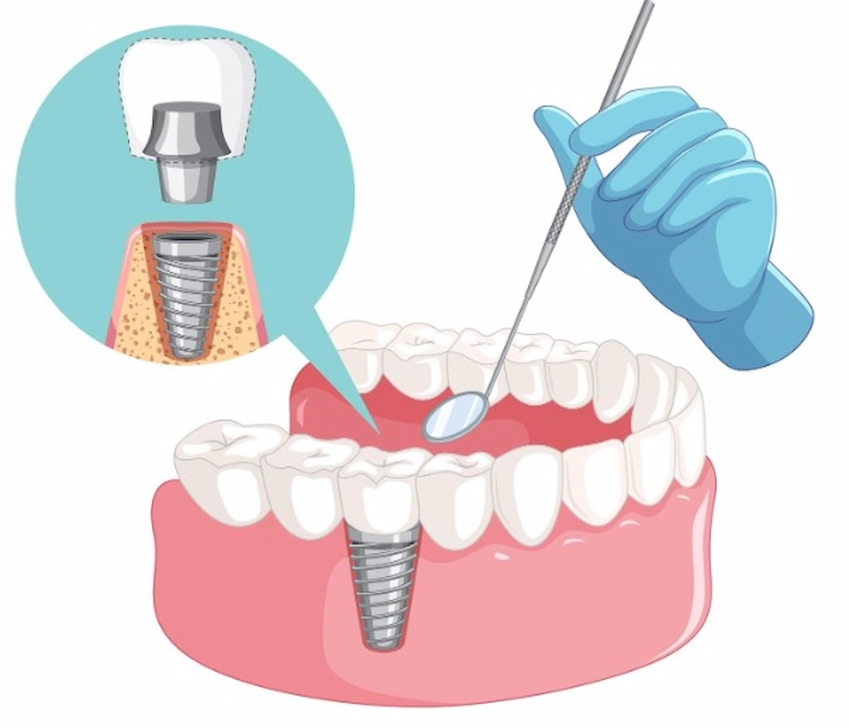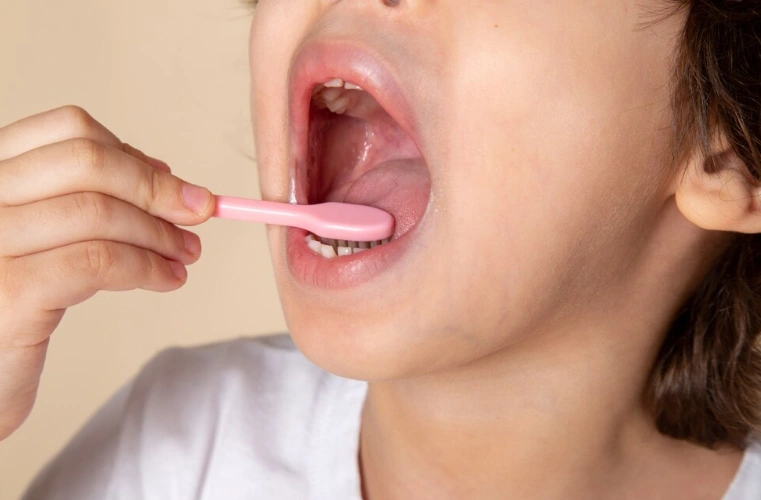How Scaling and Polishing of Teeth Done?
Scaling and polishing of teeth happen to be two of the most significant and common dental procedures that a person can use to maintain proper oral hygiene and prevent the development of various kinds of dental issues. Though brushing and flossing are essential for daily dental care, they are not enough to keep a person’s teeth and gums as clean and healthy as possible and to taste pleasant in the mouth.
Only when such professional cleansing agents as dental scaling and polishing are asked can anyone be sure that his or her teeth will be clean and healthy as he or she would like them to be. This blog is part of the hospital’s official website where we will go in-depth about the process and impact of scaling and polishing, how they work, what their significance is for dental health and how they can improve our overall oral health.
The content we present to our dear readers is factual, enlightening and engaging since our work in the dental department is to make sure that each client provides the most high-quality service and care to all patients.
What Is Scaling and Polishing of Teeth?
Scaling and polishing of teeth, what are they? The term refers to the removal of the plaque, tartar (calculus), and stains on the teeth through professional cleaning by the dentist or dental hygienist. When they say ‘scaling’, they mean the removal of tartar both on the surface of the teeth and under the gums, while polishing is for the removal of the smooth tooth surfaces to prevent the future occurrence of plaque deposition.
Just to mention, plaque is a sticky layer of bacteria that forms on your teeth, while tartar is calcified plaque that can only be removed by a dentist using an ultrasonic scaler or other instruments. What is scaling and polishing of teeth? In this sense, these treatments are the basis for having healthy teeth and gums as well as they protect teeth against the formation of caries and the occurrence of oral diseases.
Why Is Scaling and Polishing Important?
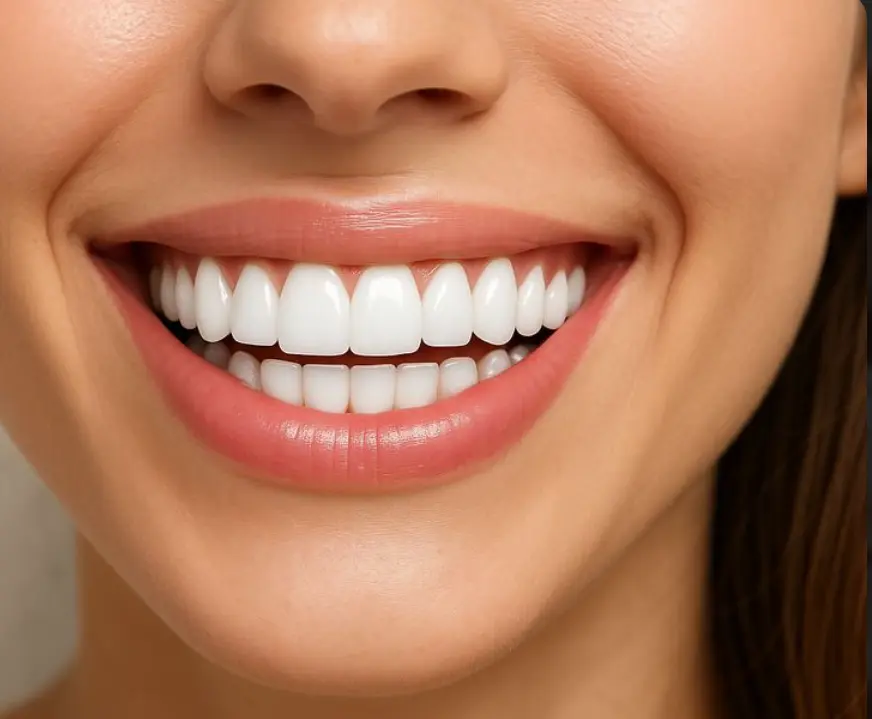
Why is it necessary thatScaling and polishing of teeth are done? The performance of regular scaling and polishing helps in ridding the mouth of the old plaque and tartar mainly from the areas hard to reach by a toothbrush and dental floss. The presence of tartar may invite periodontal disease, tooth decay, etc. Therefore, the process of tartar removal most efficiently done by the dentist plays a crucial role in preventing these problems from occurring.
Along with the cleaning and the removal of the tartar deposits under the gums, this routine is effective in making your smile look better as well. The cleaning of the teeth is done with some products that can make the teeth look even better.
The Process of Scaling and Polishing
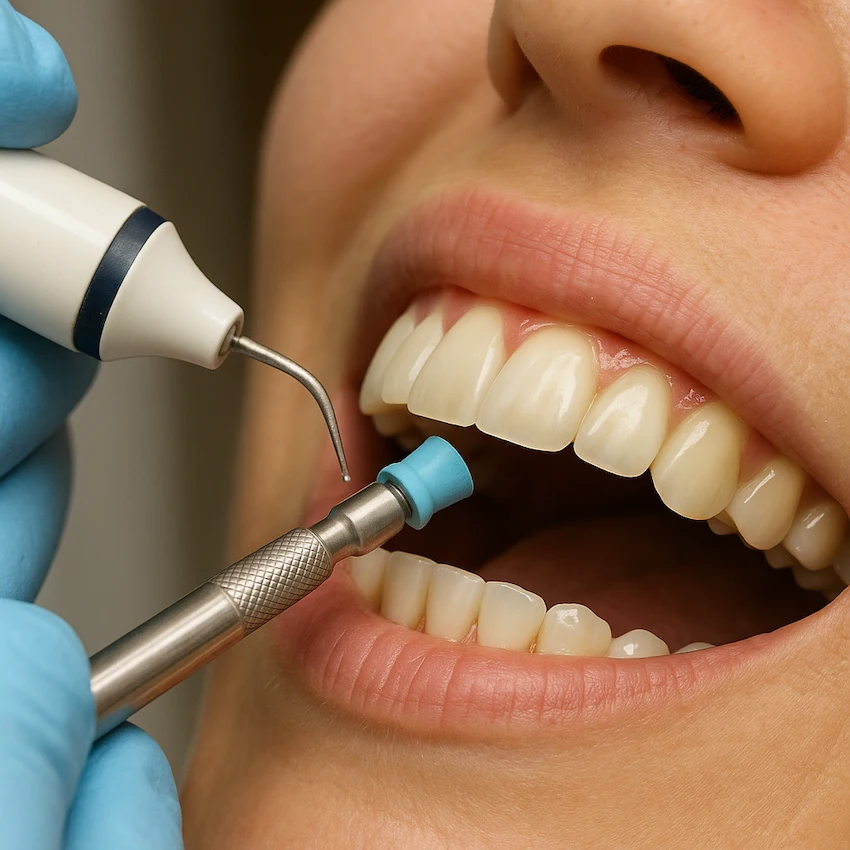
Scaling and polishing of teeth is a dental treatment and involves two major stages. Actually, first, it is recommended to remove plaque and tartar from the surface teeth to achieve excellent oral care; this is called scaling.
- Scaling: The dentist or hygienist employs a particular instrument, frequently an ultrasonic scaler or hand instruments, to eliminate plaque and tartar that have been deposited on the surface of your teeth and under the gumline. Removal of the tartar is a must for the prevention of periodontal disease and the maintenance of healthy teeth. The ultrasonic scaler gives off vibrations that assist in the disintegration of the tartar and bacteria, while hand instruments are for more detailed and careful removal especially in places where the buildup is quite severe.
- Polishing: After brushing, the dentist or hygienist finishes the job by polishing the teeth to complete plaque and stain removal on the surface of the teeth. Polishing is accomplished with the use of a special toothpaste and a brush or a rubber cup that is attached to the dental handpiece which is rotating. What is scaling and polishing of teeth in terms of finish? Polishing exposes the rough surface minimized by you, making it easier for the plaque to detach from there and your teeth stay clean for a longer period of time.
Benefits of Scaling and Polishing of Teeth
What is scaling and polishing of teeth in terms of benefits? These procedures perform the function of encouraging healthy teeth with the help of advances in technology, they can include the following advantages:
- Prevention of Gum Disease: Scaling eliminates tartar that is the main cause of gingivitis and periodontitis, both of which can give rise to symptoms of gum recession, bleeding, and tooth loss if not treated.
- Cavity Prevention: Through the removal of plaque and tartar, scaling leads to the decrease of the risk of cavities that bacteria cause forming.
- Improved Oral Hygiene: Polishing makes it less likely that plaque will stick to your teeth, thus the oral hygiene you have between visits is maintained.
- Aesthetic Improvement: Polishing gets rid of stains resulting from the consumption of food, drinks, and smoking, thus the teeth of yours become lighter and give out a healthy appearance.
How Often Should You Have Scaling and Polishing?
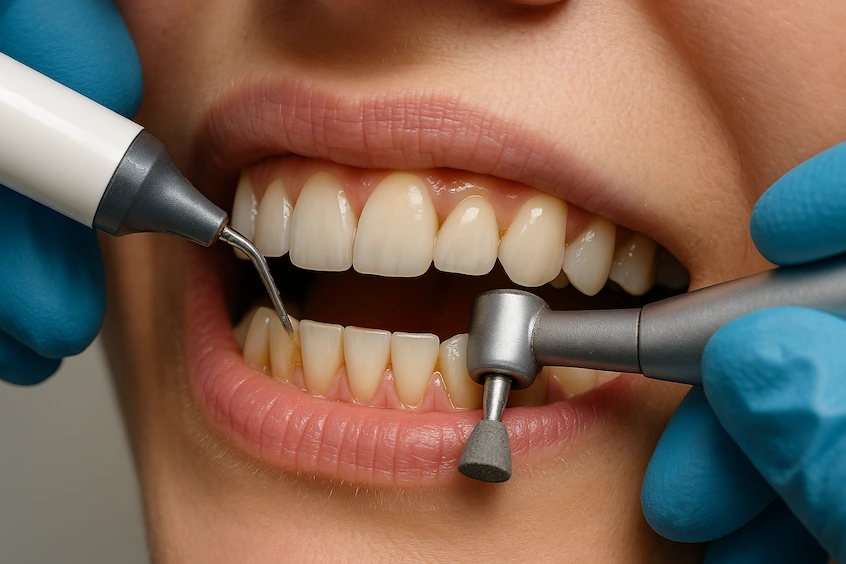
How is the frequency of scaling and polishing of the teeth defined? Most dentists advise that the period for scaling and polishing should be from six months to a year depending on oral health. If the person is at risk of plaque buildup and gum diseases, he or she will need cleanings more often. But for the majority of people a twice-yearly dental cleaning is enough to keep the teeth and gums in good condition.
FAQs About Scaling and Polishing of Teeth
Scaling is a procedure that involves the elimination of plaque and tartar from your teeth, while polishing works to the tooth and removes the discoloration for a lighter shine.
Scaling and polishing are indeed good treatments by the dentist to clean one’s mouth, as they remove plaque, tartar, and even minor discolorations of teeth and make the oral hygiene better.
Scaling and polishing have usually been effective for a period from six months up to a year. This is majorly influenced by the individual’s oral hygiene habits and lifestyle.
Some side effects that are commonly mentioned project tooth sensitivity and gum irritation for a short period of time. Once the treatment is done, the symptoms generally go away on their own in a couple of days.
Scaling and cleaning normally do not cause pain, but a few people are able to feel slight sensitivity or discomfort, particularly if they have periodontal disease.
References:
American Dental Association. (2021). Professional teeth cleaning. American Dental Association. https://www.ada.org/en/member-center/oral-health-topics/professional-teeth-cleaning
Mayo Clinic. (2020). Oral health: Dental care and teeth tips. Mayo Clinic. https://www.mayoclinic.org/healthy-lifestyle/adult-health/expert-answers/oral-health/faq-20057942
WebMD. (2021). Dental scaling and polishing. WebMD. https://www.webmd.com/oral-health/ss/slideshow-dental-cleaning
National Health Service (NHS). (2020). Dental care: Plaque and tartar. NHS. https://www.nhs.uk/conditions/dental-health/plaque-and-tartar
